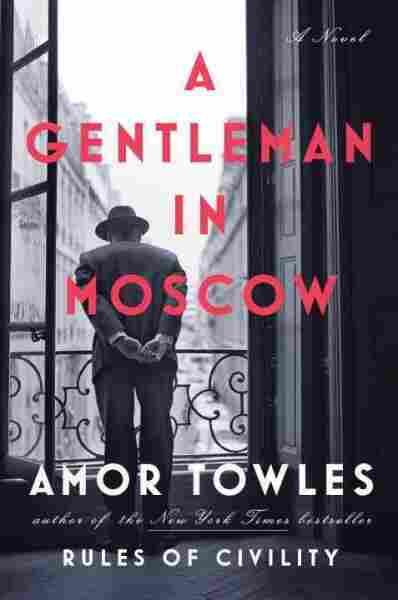In the grand tapestry of literature, few works weave together time, place, and character with such exquisite finesse as Amor Towles’s “A Gentleman in Moscow.” Set against the backdrop of early 20th-century Russia, the novel chronicles the life of Count Alexander Rostov, a man of noble birth sentenced by the Bolshevik regime to house arrest in the opulent confines of the Metropol Hotel. This arrest, rather than serving as a mere limitation, becomes the crucible for profound transformation and discovery, rendering the hotel a microcosm of the social and political upheaval outside its gilded doors.
A Captivating Metaphor for Life’s Constraints
The Metropol Hotel serves not only as the setting but also as a captivating metaphor for the constraints we often face in life. Rostov’s incarceration is symbolic of the broader human experience—encountering limitations that compel us to introspect and adapt. The hotel, with its lavish interiors and diverse array of inhabitants, becomes a sprawling universe, where time plays the dual role of both antagonist and ally.
Each floor, hallway, and dining room whispers the stories of its transient guests, reflecting the mosaic of society. Through the lens of a solitary count confined within these walls, readers are invited to explore the interplay between isolation and connection. The restrictions imposed upon Rostov illuminate the resilience of the human spirit—his ability to cultivate a rich inner life despite physical limitations. In a world that often feels expansive and overwhelming, Rostov’s journey reminds us that our most poignant experiences and relationships can flourish in the seemingly most stifling of environments.
The Elegance of Character Development
At the heart of Towles’s narrative lies a profound exploration of character, particularly that of Count Rostov. The count is not merely a relic of the past; he is a richly developed individual infused with charm, wit, and a deep-seated appreciation for the nuances of life. Through Rostov, the novel articulates the idea that elegance transcends mere social standing. His aristocratic demeanor, nurtured by a lifetime of privilege, is juxtaposed against the stark realities of a changing Russia. Despite the limitations and loss, he discovers a form of nobility not rooted in wealth but in generosity, kindness, and intellectual curiosity.
The relationships Rostov forges within the confines of the Metropol create a kaleidoscope of human experience. Each character, from the resourceful hotel staff to the spirited child, Sofia, becomes a thread in the rich fabric of his life. Their interactions ebb and flow, akin to the rhythms of a symphony, each contributing their unique notes to the overarching narrative. Sofia, in particular, emerges as a poignant symbol of hope and continuity, representing the next generation and the promise of a brighter future, even amidst tumultuous change.
A Chronological Reflection of Historical Change
“A Gentleman in Moscow” meticulously maps the unfolding of history against the backdrop of Rostov’s confinement. The interwar period, rife with sociopolitical turmoil, brings forth a panoply of changes, each reverberating through the halls of the Metropol. The narrative dances through time—each decade feels alive, laden with the weight of historical significance. Through Rostov’s observations and experiences, readers gain insight into the aspirations and hardships of a nation grappling with its identity.
The passage of time is characterized by a blend of nostalgia and realism. Each year that passes resonates with the echoes of the outside world—the tumult of war, the rhythm of revolution, and the gentle whispers of cultural evolution. Towles’s deft prose embodies the essence of time’s passage, crafting moments that are both fleeting and timeless. As the world outside the Metropol changes, Rostov’s internal realm expands, mirroring the ebb and flow of both personal and collective evolution.
The Philosophical Undertones
Delving deeper into the narrative, philosophical musings permeate the text, inviting contemplation on the themes of freedom, identity, and the essence of happiness. Rostov’s elegant musings compel readers to ponder the nature of confinement and liberation—what it truly means to be free in a world fraught with constraints. The dichotomy of Rostov’s physical imprisonment juxtaposed with the richness of his inner life raises profound questions about the true essence of freedom.
This philosophical inquiry resonates with the reader, urging them to reflect on their own life choices and relationships. Are we not all, to some degree, confined by societal expectations, personal fears, or circumstance? Yet, within those confines lies the possibility of discovering profound meaning and beauty. The narrative becomes a gentle reminder that life’s most exquisite moments often arise when we embrace our limitations and wield them as tools for personal growth.
The Uniqueness of Style and Narrative
Towles’s stylistic prowess is noteworthy, characterized by lyrical prose that immerses readers in Rostov’s world. Each sentence unfolds with a deliberate cadence, echoing the elegance of the count himself. Vivid descriptions of the bustling hotel life, the sumptuous cuisine, and the intricate details of Russian culture serve to enrich the narrative tapestry, creating a sensory experience that is both intimate and expansive.
The dialogic exchanges between characters are suffused with wit and humor, deftly illustrating the warmth of human connection even amidst the isolation of arrest. These moments of levity balance the weightier philosophical explorations, creating a fluid dynamics that captivates readers from start to finish.
Conclusion: A Timeless Exploration of the Human Spirit
“A Gentleman in Moscow” stands as a testament to the enduring capacity for human connection, intellect, and resilience in the face of adversity. It invites readers not only to witness the life of a gentleman but to participate in a meaningful exploration of life itself. Through Rostov’s journey, we uncover the profound truths that lie within our constraints, the elegance of relationships, and the inexorable passage of time. Ultimately, Towles crafts a narrative that is not merely a historical chronicle but an homage to the human spirit’s ability to flourish, even in the most unexpected of circumstances.
